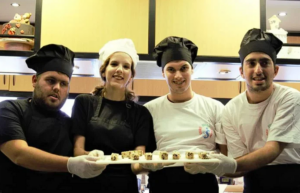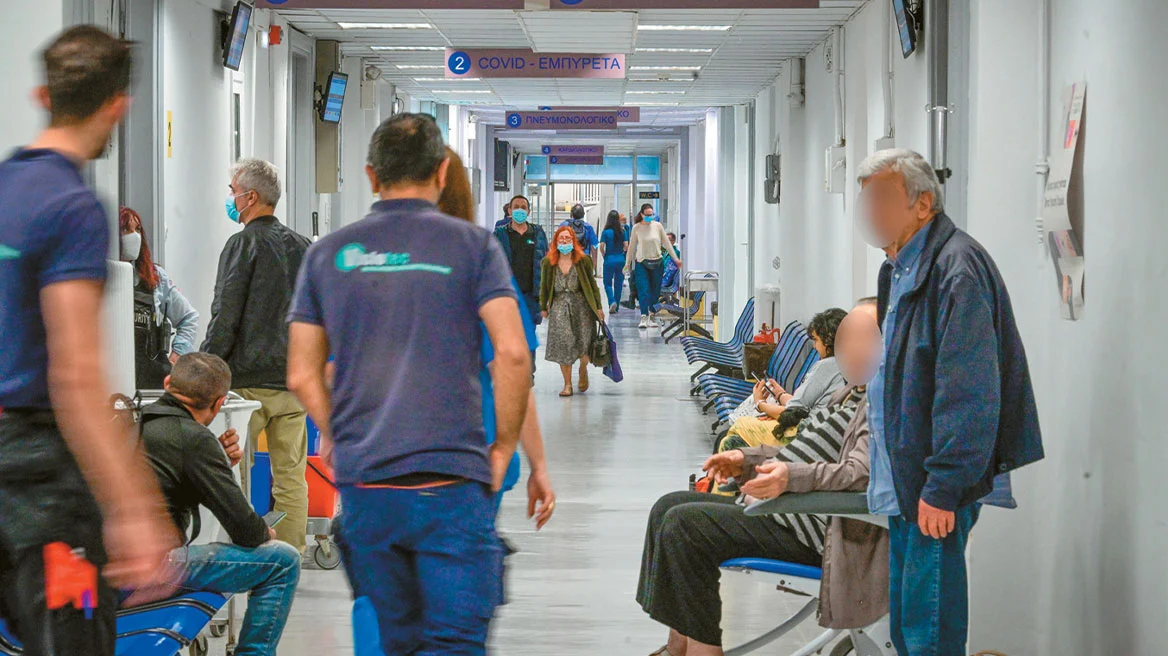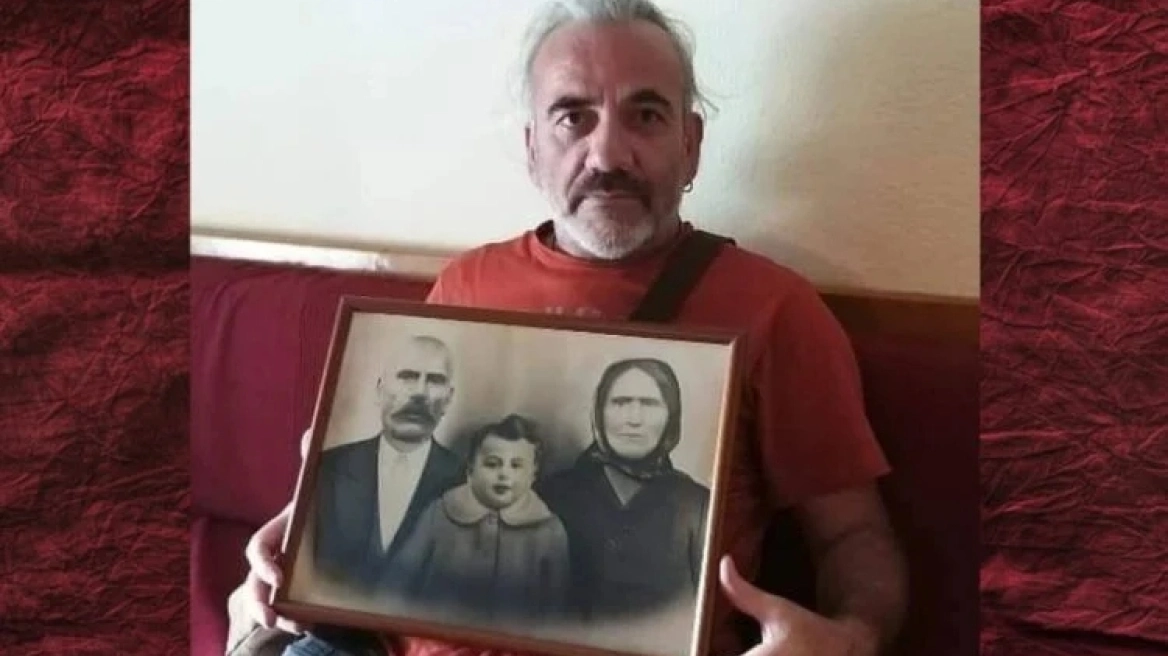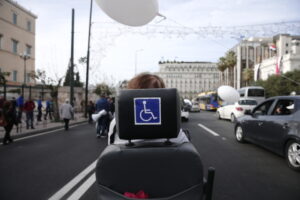In Greece, youths with intellectual and developmental disabilities have a very low rate of employment after school. Even those who are lucky enough to get a job it is usually part-time and underpaid. However, employment opportunities can contribute to these individuals’ social inclusion, personal development, increased independence and self-sufficiency, financial gain, and higher levels of self-esteem and psychological well-being. This is a group of young people with disabilities who sell cereal bars in Athens. After graduating from special vocational training workshops, they set up 3S School Synergy Snacks, with the help of their parents and teachers.
Four members of the team are Yannis Hatziargyriou, Eleni Albertou, Michalis Sideris, and George Vradis. They are actively involved in producing products such as cereal bars with sesame, almonds, peanuts, olives, and honey.
The explanation of Yiannis’ mother, Vaso Evangelou, for this initiative: “In Greece today, business is difficult anyway. It is even more difficult for people with many limitations and mental difficulties. It is also very difficult for people with many difficulties, especially for those who have a lot of difficulties. Those who are their mind and voice.
One of the members of the operation, Helen Albertou, said: “Although my life was difficult, I managed to achieve what my soul was asking for. A degree in cooking – pastry that gave me some skills and the privilege to pursue my career path professionally. The difficulties that my team and I encounter make us stronger and bring us closer to achieving our goals. Thanks to those who supported us in the beginning.
“This is a delicious and healthy product and a team of young workers who make us proud every day. Taboos will always exist, but they are based on ignorance or lack of information. Fortunately, we live in times when society is more open and the idea of employing people with disabilities is not utopian.
As the 3S School Synergy Snacks notes on its website: “Knowing all the implicit difficulties and limitations, and also the various social prejudices, we are determined to take the necessary steps and make our small contribution to changing this reality. Our goal is to operate as an inclusive incubator that will offer work opportunities to even more youngsters, and graduates of Special Education Schools. Moreover, we aspire to become an example of good practice in a certain market, create a business model, and offer training and consulting to other enterprises that want to initiate something similar.”
3S – School Synergy Snacks is a Social Cooperative Enterprise for the integration of vulnerable groups and has been operating since 2019 having the vision of the vocational rehabilitation, employability, and social inclusion of young people with intellectual disabilities and other developmental disorders. Our products are “Energy Nut Bars” with high nutritional value and quality raw materials.
In Greece, where there are 100,000 births per year, 700 to 1000 children are diagnosed with autism every year. It is clear that autistic disorders are not rare, on the contrary, they are more common than many other paediatric diseases – such as Diabetes Mellitus or Down’s Syndrome – which makes autism a pressing public health problem. In recent years, due to the highly increased prevalence of the problem, the American Academy of Pediatrics has recommended screening for autistic-type disorders in all normal children between the ages of 18-36 months.
Autism affects children regardless of their social class and ethnic and racial background. Boys are affected more often than girls: the prevalence in boys is 3 to 4 times higher than in girls. If a family has one child with autism, the probability of that family having another child with autism is between 5 and 10%. In contrast, in a family where there is no case of autism, the probability of having a child with autism is in the range of 0.1% to 0.2%.
support their work by visiting their website here
feature image credit
Ask me anything
Explore related questions





